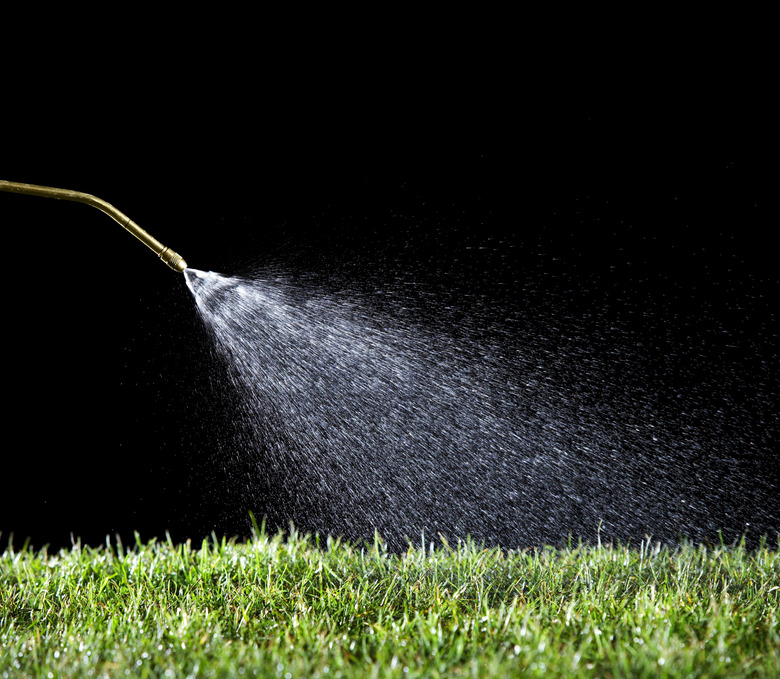What If Roundup Freezes?
Since 1974, when it was first introduced by the Monsanto Company, Roundup has been a leading weedkiller, and its active ingredient, glyphosate, has become the world's number one herbicide. Glyphosate inhibits the formation of certain enzymes in growing plants, thus causing the plants to wilt and die within a few hours to a week of application. If glyphosate freezes, it goes back into solution upon thawing, according to the University of Maine Extension.
Description of Glyphosate
Description of Glyphosate
Glyphosate is a post-emergent, nonselective herbicide, which means it is effective only against plants that have broken ground, and it kills any plant with which it comes in contact. The only plants that are safe from it are those that have been genetically modified to resist it. Roundup typically is applied by spraying. The active ingredient migrates through the leaves and into the phloem, which carries it to areas of new growth, where it reacts with the plant enzymes and kills the plant. Roundup also typically contains surfactants to facilitate absorption of the active ingredient by the plant.
Storing Roundup
Storing Roundup
The University of Florida Extension cautions that many herbicides can coagulate in cold weather, and when they thaw, they may no longer be effective. This isn't the case with glyphosate, according to the University of Maine and Cornell University. Glyphosate freezes at minus 20 degrees Fahrenheit, and when it thaws, it goes back into solution and, although neither source specifies this, should remain as effective as it was before it froze. This suggests that you can store glyphosate outside in the winter, as long as the container holding it won't suffer damage by freezing. For its part, Monsanto offers no information about storage temperatures on the Roundup label.
Applying Roundup in Cold Weather
Applying Roundup in Cold Weather
Plants absorb Roundup most readily in moderate to warm temperatures, ideally above 60 degrees Fahrenheit, when they are experiencing peak growth. Freezing temperatures shouldn't have any effect on the efficacy of the herbicide simply because glyphosate doesn't freeze until the temperature falls below minus 20 degrees Fahrenheit. That's low enough to kill the weeds whether or not you spray them. Even if they manage to survive the cold, they still will absorb the herbicide when temperatures rise, and it will circulate, albeit sluggishly, to do its job.
Precautions
Precautions
Roundup may not be effective in cold weather, even if the weather isn't cold enough to freeze. Plant metabolism may be too slow to allow the plant to absorb the active ingredient before it evaporates from the leaves. Moreover, cold weather often is rainy weather, and while Monsanto claims that 30 minutes is a safe interval between spraying and a moderately heavy rain, that interval may increase in cold weather. Consequently, you may need to spray more than once. Store Roundup in plastic, fiberglass or stainless steel containers only. It is caustic and corrodes iron or galvanized steel.
